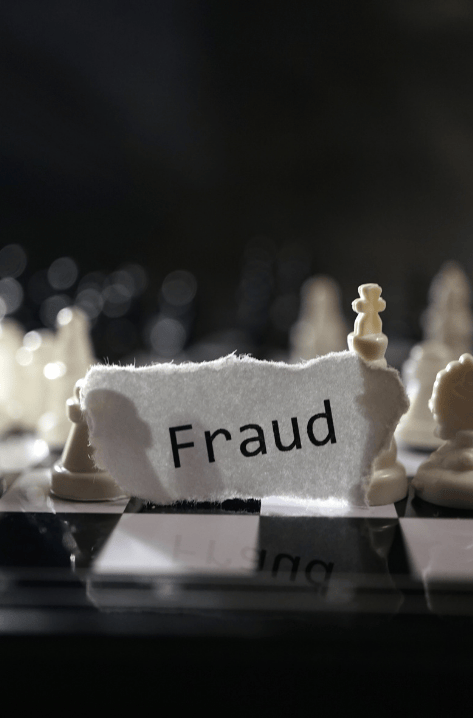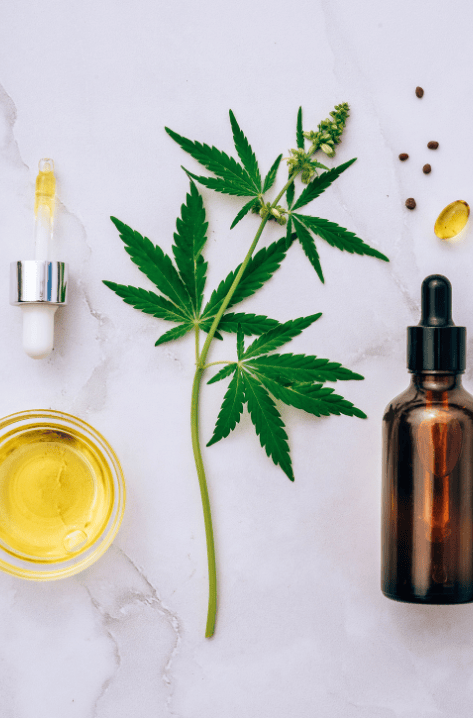Overview of the Licensing Process for Pharmaceuticals in Türkiye - Healthcare Series 12
21.06.2021
Introduction
One of the pharmaceutical regulatory authorities’ main responsibilities is to examine license applications for new medicines in terms of safety, efficacy, and quality in order to maintain public health before they are presented to the market. Thus, pharmaceutical companies are obligated to obtain approval from the government to place a new medicine on the market, subsequent to scientific research and development activities.
In this article, we will offer insight into the general standards and procedures within the scope of the regulatory landscape regarding the licensing of medicinal products for human use in Turkey.
Organization
The Ministry of Health (“MoH”) and its subsidiaries govern the pharmaceutical industry in Turkey and regulate the licensing process.
The Turkish Medicine and Medical Devices Authority ("TITCK") is the competent authority that grants licenses and market authorization to pharmaceutical companies, monitors their compliance with the regulations, imposes any necessary sanctions, approves and controls clinical trials, and takes precautions to sustain accessibility to products. Also, TITCK is a regulatory member of the International Council for Harmonization of Technical Requirements for Pharmaceuticals for Human Use.
The Medicinal Product Licensing Office, as a subsidiary of TITCK, is authorized to license medicinal products for human use, approve and publish product briefs and instructions for use, conduct license suspension, and license cancellation procedures, determine the rate at which medicinal products for human use are to be withdrawn from the market for any reason, and evaluate all changes and updates following a product’s licensing.
The Regulatory Landscape
General standards for medical preparation applications pertaining to licensing and administrative fines in regard to companies that fail to comply with these standards are stipulated in the Pharmaceutical and Medical Preparations Law (“Law”) [1], which is the statutory basis for further regulations regarding the same.
The Regulation on Licensing of Medicinal Products for Human Use ("Licensing Regulation")[2] extensively regulates the licensing of medicines. The principles and procedures that must be followed to ensure that licensed products fulfill the safety and quality criteria are specified within the scope of the Licensing Regulation. The Licensing Regulation addresses who can apply for a license, the documents to be submitted in an application, the evaluation, acceptance, and rejection criteria for license applications, the validity period, the responsibilities of a license holder, the cancellation of a license, and the change of a license holder.
Any medicinal product for human use that is not licensed by the MoH cannot be marketed. Any real or legal person resident within the borders of Turkey is required to provide the necessary information and documents to the MoH in order to receive a license and to place a product on the market according to the Regulation in question.
Pharmaceutical industry actors should also comply with the Regulation on Labelling and Packaging of Medicinal Products for Human Use, which specifies the procedures and necessary information that must be included on labels and packages, and the Regulation on Safety of Medicinal Products for Human Use that regulates the permitted methods of monitoring, researching, recording, archiving and assessing the safety of medicinal products for human use to be able to present a product to the market.
The Licensing Process
According to the Licensing Regulation, key issues specified with regard to the medicinal product licensing process in general are as follows:
- Persons Eligible to Apply for a License: Article 7 of the Licensing Regulation requires real persons to have graduated from a school providing education in the fields of pharmacy, medicine or chemistry and to have the right to practice their profession in Turkey. Legal entities are required to employ someone as an "authorized person" who has the aforementioned qualifications and has knowledge and experience related to the product or products subject to the application.
- Information and Documents Required for an Application: According to the Licensing Regulation, a registration application must be made to the MoH with the particulars and documents pursuant to the requirements set out in the Annex of the Regulation, and must follow the guidelines published by the MoH regarding the Common Technical Document (“CTD”), which is an international file format. The particulars and documents must be presented as five modules in order to be evaluated for licensing:
- Module 1 Administrative Data
- Module 2 Quality Information, Non-Clinical and Clinical Summaries
- Module 3 Chemical, Pharmaceutical and Biological Information
- Module 4 Non-Clinical Reports
- Module 5 Clinical Study Reports
- Licensing Period: As specified in Article 13 and Article 15 of the Licensing Regulation, the MoH conducts a preliminary evaluation within 30 days of receipt of an application dossier and will inform the applicant regarding the result. In cases of deficiencies in an application dossier, the applicant must correct these within 30 days of the relevant notification. The MoH conducts a second preliminary analysis within 30 days of the correction of deficiencies.
After a preliminary examination is completed, the MoH examines whether the licensing conditions have been fulfilled and concludes the application within 210 days following its acceptance.
- Licensing Criteria: According to Article 16 of the Licensing Regulation, when issuing a license, the MoH takes into consideration whether a pharmaceutical:
- Has proven efficacy in the envisaged conditions of use,
- Has proven reliability,
- Has adequate technical and pharmaceutical properties.
In cases where it is deemed to be for the protection of public health, the MoH may waive some of the above-mentioned criteria by taking into consideration pharmacoeconomic data.
According to Article 17 of the Licensing Regulation, while evaluating licensing applications, the MoH seeks and considers:
a) whether the information and documents scientifically and technically prove the efficiency, reliability, and quality of a product,
b) whether a product is tested in a national or MoH-accredited laboratory in order to determine the accuracy of the product formulation and the applicability of the methods used by the manufacturer in the control of the product,
c) for blood products; whether control tests have been conducted to determine viral contamination to prove the reliability of the product, and that the source of the plasma used in the preparation of the product has been specified,
d) whether there are documents provided by the official authority indicating the absence of BSE for products, including substances of animal origin; and for blood and plasma products, tests for viral contamination, AIDS, hepatitis, etc.
- License Validity Period: A license holder must present licenses to the MoH no later than three months before the end of the fifth year after a license has been granted, with necessary pharmacovigilance data as well as data on quality, safety, and efficacy, reflecting all changes that have occurred since the license was granted. An extension request regarding a license’s validity period shall be finalized within six months.
- Responsibility of the License Holder: According to Article 25 of the License Regulation, a license holder will be responsible to the MoH:
- to manufacture in accordance with the specifications,
- to take scientific and technical progress into consideration,
- to update product briefs and instructions for use,
- to fulfill the necessary obligations within the framework of pharmacovigilance applications after a product is placed on the market,
- to ensure that measures are taken to prevent infections that may be transmitted by biological products,
- to ensure a product’s availability on the market,
- to fulfill the relevant legal requirements according to the legislation in force.
When Can License Applications be Refused?
According to Article 18 of the Licensing Regulation, the MoH can refuse license applications if it finds that:
- The potential risk is higher than the effect of the treatment under normal conditions of use,
- The therapeutical effect is insufficient or is not sufficiently proven,
- The qualitative and quantitative formula is not consistent with the formula submitted in the application even though the declared control methods are implemented.
Covid-19’s Effect on the License Regulation
The Regulation Amending the Regulation on Licensing of Medicinal Products for Human Use ("Amending Regulation")[3] stipulates that the TITCK may grant emergency use authorization for vaccines to be used in exceptional cases where the public health is threatened by a disease categorized as an infectious disease by the World Health Organization. Under usual circumstances, the MoH requires receipt of data regarding the safety, effectiveness, and quality of the vaccine that form the basis for official registration. The Amending Regulation aims to provide legal grounds for the use of vaccines whose necessary clinical data for obtaining a license in accordance with the Licensing Regulation is not yet duly provided. Thus, newly generated Covid-19 vaccines will be able to be used, and infection risks will be reduced in order to maintain public health.
Conclusion
Pharmaceutical companies must obtain approval from government agencies before launching a new product onto the market. Governments are obliged to ensure public access to new medicines/treatments when necessary. In order to provide reliable and accessible treatments, competent authorities set the standards for products to be placed on the market by pharmaceutical companies. We hope the information regarding this process we provided above is useful. You can reach the regulations mentioned in the article here. (Available in Turkish only).
[1] Pharmaceutical and Medical Preparations Law No. 1262 published in the Official Gazette numbered 898 and dated May 26, 1928
[2] The Regulation on Licensing of Medicinal Products for Human Use published on the Official Gazette dated January 19, 2005 and numbered 25705
[3] The Regulation Amending the Regulation on Licensing of Medicinal Products for Human Use published in Official Gazette, numbered 31338, on 18 December 2020
-
Kemal Altuğ Özgün
Managing Partner




